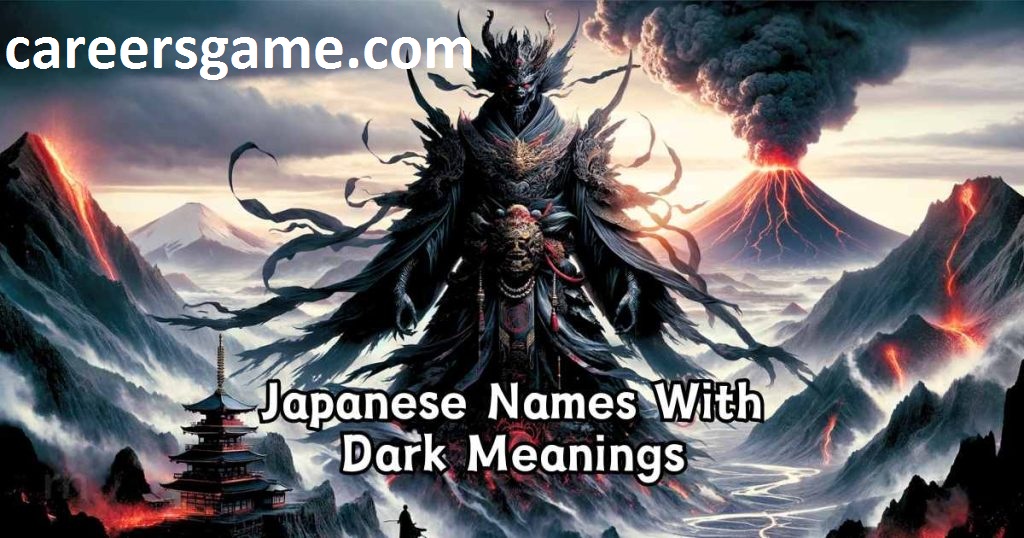In this article, we will explore some Japanese boy names that mean “dark” or are related to darkness, providing insight into their meanings and the cultural context behind them.
1. Kuro (黒)
One of the most direct names associated with darkness is Kuro (黒), which means “black” in japanese boy names meaning dark. The kanji used for this name represents the color black, a symbol of darkness and obscurity. The name Kuro can evoke thoughts of night, shadows, and the unknown. While “Kuro” might seem simple, it carries a certain depth due to its association with darkness and the night sky. In Japan, the name is sometimes used as a nickname for boys with dark hair or a dark complexion, but it also carries a poetic meaning linked to the color of the night.
2. Yami (闇)
The name Yami (闇) literally means “darkness” in Japanese. This name can evoke images of deep, impenetrable shadows and the hidden aspects of life. The kanji used for “Yami” represents not just physical darkness, but also the emotional or metaphorical kind of darkness, like mystery or the unknown. Yami can symbolize a person who is introspective, mysterious, or someone who thrives in challenging circumstances. This name is relatively rare, making it a unique choice for a boy’s name.
3. Kage (影)
Another popular name related to darkness is Kage (影), which means “shadow.” A shadow is, of course, tied to light being obstructed by an object, creating darkness. In Japanese culture, shadows are often symbolic of the hidden aspects of the self, secret emotions, or the duality of existence. People named Kage may be thought to possess a quiet strength or an enigmatic nature. Kage as a name can reflect a connection to the unseen world, making it a poetic choice for parents who appreciate subtlety and depth.
4. Raiku (雷空)
Although Raiku (雷空) is often associated with “thunder” and “sky,” it can also be tied to darkness due to the imagery of thunderstorms and the ominous skies that accompany them. Thunderstorms, especially at night, create a dramatic contrast between flashes of lightning and the darkened sky. This name, while not directly meaning “dark,” evokes the intense power and energy of a storm and the shadowy, mysterious qualities of the sky during such events.
5. Kurou (九郎)
Kurou (九郎) is a traditional Japanese name that can have a dark undertone. The kanji for this name can represent “ninth son” (九郎), but “Kuro” (黒), which means “black,” can also be used as part of the name, giving it the meaning of “dark son” or “son of darkness.” The name can evoke a sense of mystery and strength, often associated with a son born under unusual or dramatic circumstances. Historically, Kurou was also the name of some samurai and historical figures, adding to its rich, powerful connotations.
6. Shinobu (忍)
While Shinobu (忍) typically means “to endure” or “to hide,” it also carries a strong association with stealth and shadows, making it a name tied to the darker, more secretive aspects of life. In Japan, ninjas—who are known for their ability to move unseen through the shadows—are often associated with the name Shinobu. The name suggests a person who is able to thrive in difficult or hidden circumstances, someone who is strong but quietly so, enduring hardship while remaining unseen.
7. Tetsuya (哲也)
Tetsuya (哲也) is a name typically meaning “wise” or “philosophical,” but the kanji used to write it can sometimes be associated with the deeper, more mysterious aspects of wisdom—those that are often hidden in darkness or obscured by time. Wisdom gained through hardship, introspection, and overcoming adversity can be linked with the idea of “darkness,” making this name appropriate for someone who seeks knowledge in the hidden or shadowy realms.
8. Noctis (ノクティス)
While Noctis (ノクティス) is a modern name and less traditional in Japanese culture, it is worth mentioning for its association with “night” or “darkness.” The name is derived from the Latin word “noctis,” meaning “night,” and it gained popularity through the character Noctis Lucis Caelum from the popular video game Final Fantasy XV. This name evokes a strong connection to the night, a time traditionally associated with darkness, mystery, and a sense of calm or stillness.
9. Guren (紅蓮)
Though Guren (紅蓮) traditionally means “red lotus,” it has connections to darker imagery as well. The red lotus flower blooms in murky waters and is sometimes associated with the struggle to find beauty or truth in darkness. The dark undertones of the lotus flower’s growth make Guren an intriguing choice for parents seeking a name that balances light and dark symbolism.
10. Akira (暗)
Although Akira (暗) typically means “bright” or “clear,” it can also be written with a kanji (暗) that means “dark” or “obscure.” This name represents the duality of light and dark, offering a poetic connection to both enlightenment and mystery. The name Akira, depending on the kanji used, can signify someone who embodies both clarity and the ability to navigate through darkness.
Conclusion
Japanese boy names that mean “dark” or are associated with darkness offer a rich tapestry of meanings that can symbolize mystery, strength, and the hidden aspects of life. Whether through direct meanings like “Kuro” (black) and “Yami” (darkness) or through more subtle associations like shadows, night, or storms, these names evoke powerful imagery and emotion.
Choosing a name tied to darkness can be a way to imbue a child with a sense of resilience, mystery, and depth. Whether a parent is drawn to the idea of a name that represents the quiet strength of shadows or the power of the night sky, the names listed here offer a broad range of meanings and associations, providing a fitting tribute to the dark and enigmatic aspects of life.



